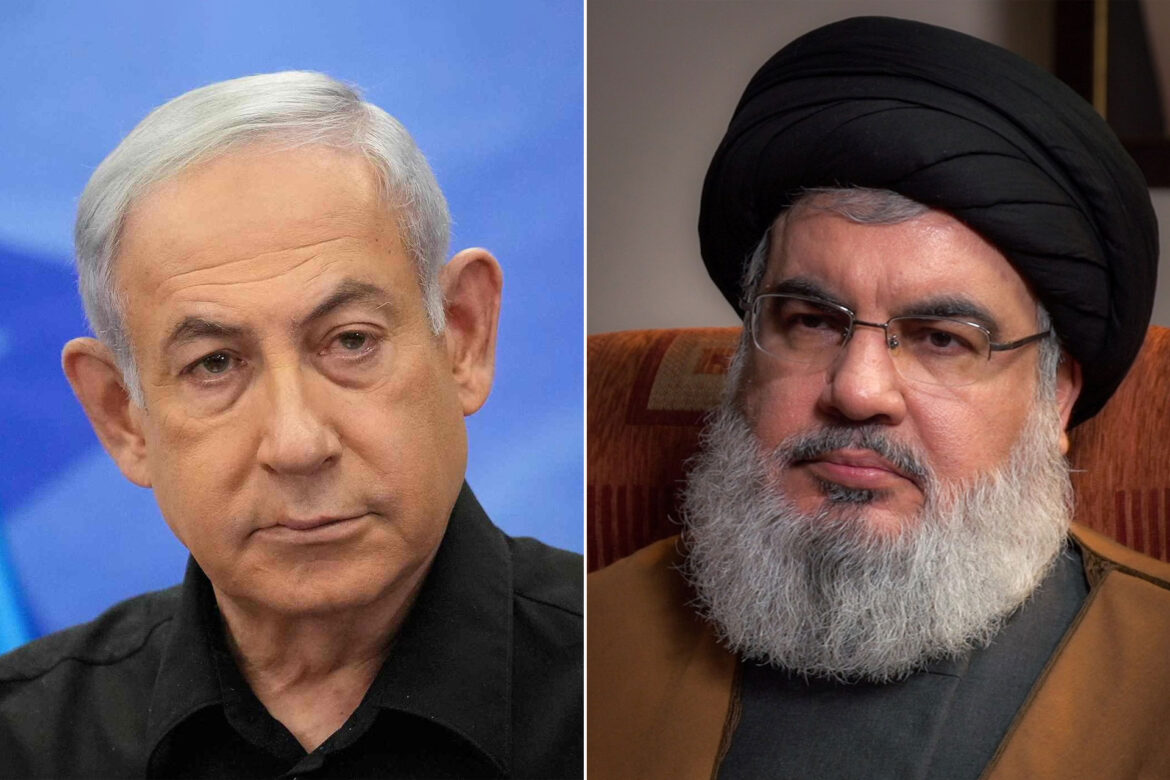The Times of Israel newspaper said that the assassination of the Secretary-General of the Lebanese Hezbollah, Hassan Nasrallah, last Friday, was the culmination of a series of attacks against the organization’s senior leadership and major weapons caches, based on intelligence information collected over decades.
It reported in a news analysis that Hezbollah is now facing many challenges, represented in confronting the infiltrations within its ranks that helped Israel destroy its weapons sites, booby-trapping its communications devices, and assassinating its “veteran” leader, whose whereabouts have been shrouded in complete secrecy for years.
It was reported that a source “familiar with the Israeli way of thinking” told Reuters hours before the strike that Israel had been focusing its intelligence efforts on Hezbollah for 20 years, and that it could have targeted Nasrallah if it wanted to at the time, even if he was at the main headquarters of his organization.
Two Israeli officials said Prime Minister Benjamin Netanyahu and his inner circle of ministers gave the go-ahead on Wednesday for the attack, which was carried out while Netanyahu was in New York to address the UN General Assembly.
Nasrallah has always avoided public appearances since the Second Lebanon War in 2006. He had been “vigilant” for a long time, his movements were restricted and the circle of people he saw was very small, according to a source familiar with his security arrangements, whom the Israeli newspaper attributed to him saying that the assassination indicates that agents Because Israel hacked his group.
Reuters reported that a security source – whose identity was not disclosed – told it a week ago that the Hezbollah leader had been more cautious since the September 17 bombings, for fear that Israel would try to kill him, pointing to his absence from the funeral of one of the leaders and his pre-recording of a speech broadcast days before. Few.
In a news report in the same context, The Times of Israel quoted the American New York Times newspaper as saying that Israel was aware of Hassan Nasrallah’s whereabouts months before launching the strike that killed him.
Officials – whose names were not revealed by the Israeli newspaper – stated that the decision to strike Nasrallah was taken in recent days without notifying the United States in advance, for fear that Israel would lose the opportunity to kill him.
According to the report, Israel planned the operation while its officials were engaged in talks with the United States about a possible cessation of hostilities, and before Prime Minister Benjamin Netanyahu left for New York early Thursday morning to speak at the United Nations General Assembly.
She explained that 3 of those officials confirmed that Hashem Safi al-Din, Nasrallah’s cousin and potential successor, was not in the underground bunker in Beirut that was targeted by the raid.
Senior Israeli Air Force officials said on Saturday that the strike went smoothly without mistakes or hostile fire on their warplanes.
The commander of the Israeli Air Force’s 69th Squadron told reporters, “Everything we planned was carried out precisely, without errors, whether in intelligence, planning, aircraft or the operation itself. Everything went smoothly.”
The newspaper revealed that the squadron has a fleet of F-15I fighter aircraft, and is stationed at the Hatzerim Air Base in southern Israel, adding that half of the pilots who participated in the operation are reserve soldiers.
The squadron commander added: “We went to strike the heart of Beirut, in the suburb. We knew who we wanted to target.”
A US official told The Times of Israel on Friday that Washington was not notified of the strike until its planes were already in the air and the operation was underway.
Israeli Channel 12 claimed that the United States felt it had been misled as soon as the strike on Nasrallah occurred.
According to the channel, some Israeli government ministers opposed the plan to target Nasrallah at a cabinet meeting, including Finance Minister Bezalel Smotrich. Smotrich, a “hawk,” and Regional Cooperation Minister David Amsalem are said to have been concerned that the move could harm the IDF’s operations in the Gaza Strip.



